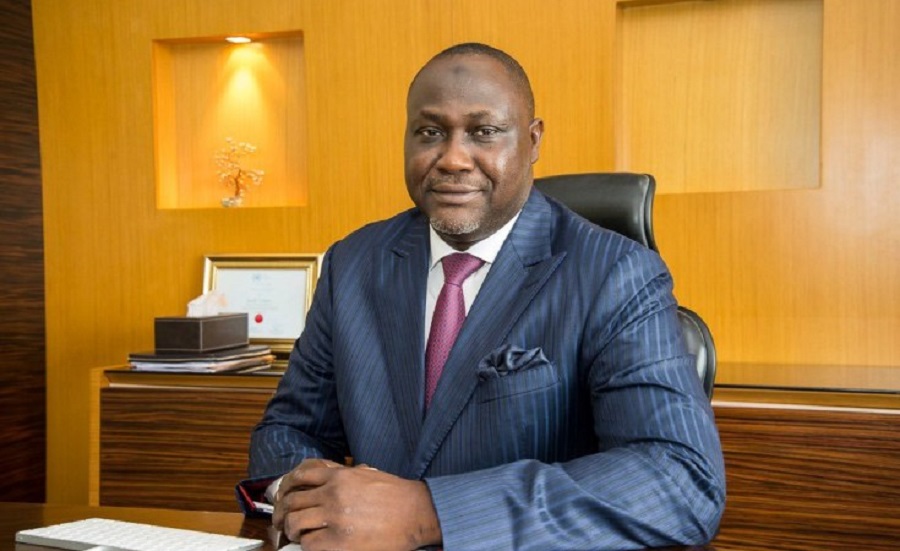During a panel discussion at the October 3rd Reuters Impact climate conference in London, the president and chief executive officer (CEO) of the Africa Finance Corporation (AFC) said that Africa’s climate challenges put the continent’s gross domestic product (GDP) at risk by up to 35%. According to him, the figure will keep growing as long as Africa lacks the infrastructure that is resilient to the impact of climate change.
According to Zubairu, the AFC believes that the challenges of the energy transition, energy crisis, and food crisis that Africa and the world face, create an opportunity for Africa to seize the moment and build ecosystems of adaptation.
“Africa needs to build ecosystems that allow for reforestation, so, trees can absorb carbon, access to cleaner cooking sources for women because firewood as a cooking source depletes the forests, which act as carbon sinks.
Africa has 60% of the best solar sources in the world, yet only 1% is utilized. Africa’s hydropower and natural gas are still largely underdeveloped – all of this can play a key role in the challenges facing the world today,” he says.
Zubairu told the Reuters Impact conference attendees that a just energy transition has to focus on reliable access that is affordable for a vast majority of people. He noted that 80% of people with no access to electricity globally live in Africa, and amongst them, there are up to 900 million people who do not have access to clean cooking.
What a just transition means to the AFC
“Just transition for us is access to energy that is affordable, energy access that does not compromise economic development in Africa, and energy access that allows for the key challenges around financing, and adaptation to be resolved at the same time as economic development.
“When we look at projects and opportunities, we are trying to see how we can build an ecosystem along value chains that allow for carbon neutrality as we go along but the focus is on economic development,” Zubairu says.
Several stakeholders have called to question the ideology behind the Global North telling Africa not to develop its natural gas resources. According to Zubairu, people should not be asked not to use gas when the alternative is fuel oil imports or the use of coal. He says the AFC has built the first wind farm in Cape Verde which covers 20% of energy requirements on the Island. The corporation is also building the first independent power project (IPP) in Djibouti which will replace imported fuel from Ethiopia, a gas-fired plant in Ghana, which will replace imported diesel and fuel oil as well as a gas plant in Senegal which will utilize naturally sourced gas from Senegal. All these projects, according to him, reduce carbon emissions.
A pragmatic approach is needed to make a change in Africa
To solve current energy poverty issues on the continent, Zubairu calls on Africans to be pragmatic, saying that there should be a consensus between African political and business leaders. He said that the way to be pragmatic is not for Africa to focus on emissions reductions, of which Africans are the lowest contributors. It is rather, to concentrate on building capacity in electromobility, solar usage, and a change in the way resources are mined on the continent.
According to him, mining is done and the minerals are exported to Asia where they are processed and exported to other parts of the world. He said that this cannot continue and Africa needs to also process mineral resources so, there is value capture here before exports take place, and Africa can expand its mining capacity.
Zubairu says; “Africa needs to expand its mining capacity, more minerals should be sourced, mined, and processed here on the continent. More investments in adaptation will increase infrastructural capacity.”
No environmental justice without energy justice
In the same panel discussion, Sudanese philanthropist, Mo Ibrahim talked tough about energy justice. He told attendees that the more developed a country is, the more carbon they are emitting.
He says; “You cannot talk about environmental justice without energy justice. Africans are most affected by climate change despite being the lowest contributors to CO2 emissions. conflicts between herders and farmers across Africa are caused by desertification, these conflicts are marked by violence in Sudan, and Nigeria due to environmental undertones.
“Africans are suffering for what they did not cause. I find it so ridiculous that some people came to Glasgow last year and decided that they would stop financing fossil fuels internationally. 600 million Africans have no access to power. Without power, there are no education, health, or jobs on the continent. The global North always talks and decides without caring what the global South needs.
“Half of Africa’s natural gas is sent to Europe, but we are not allowed to use our gas. This kind of injustice cannot continue, Africans need to have a seat at the table, without that, no one should talk about justice.”
